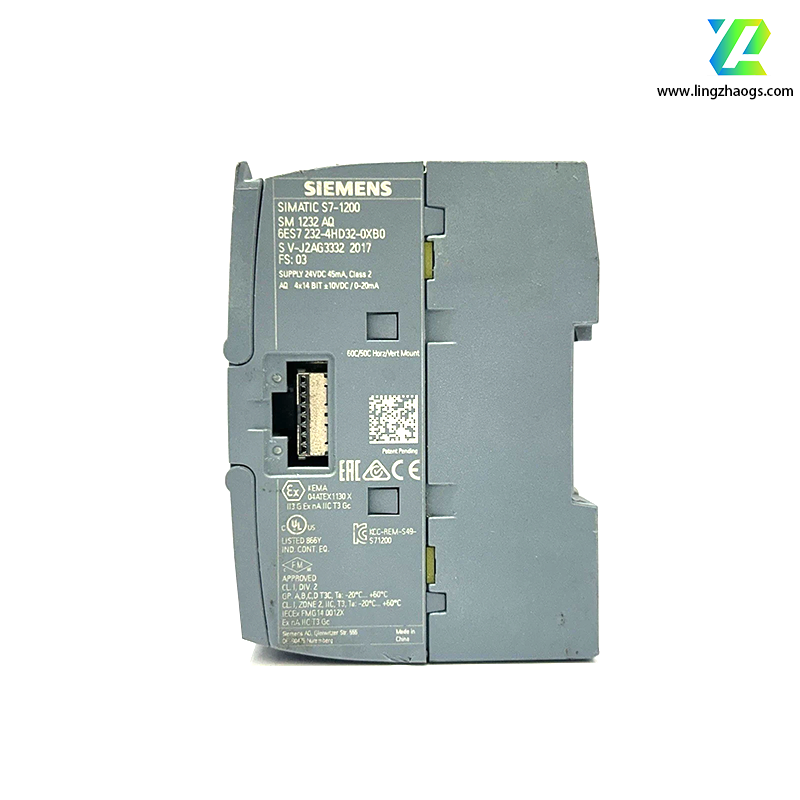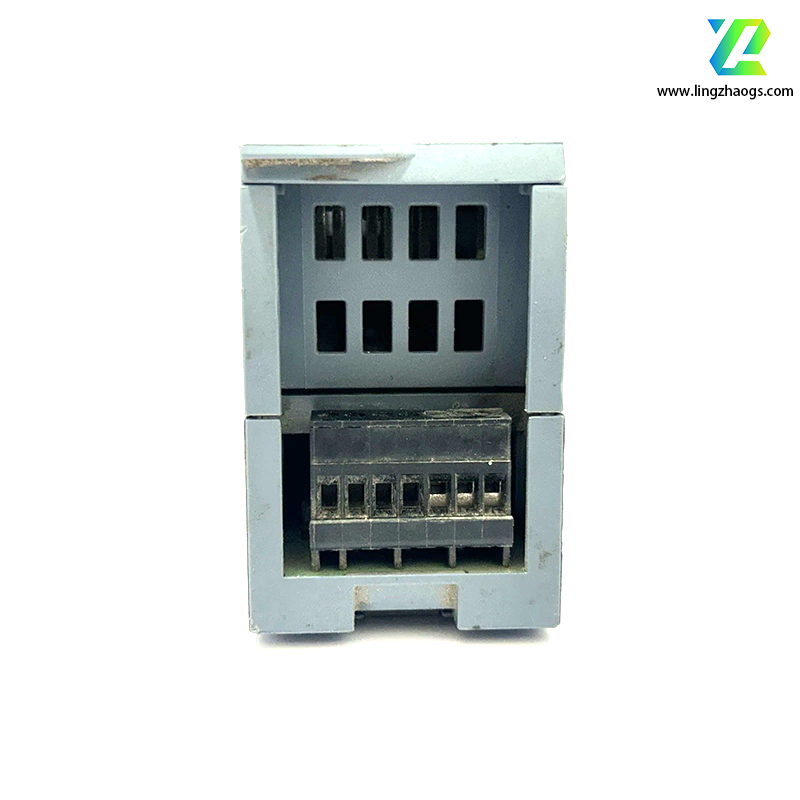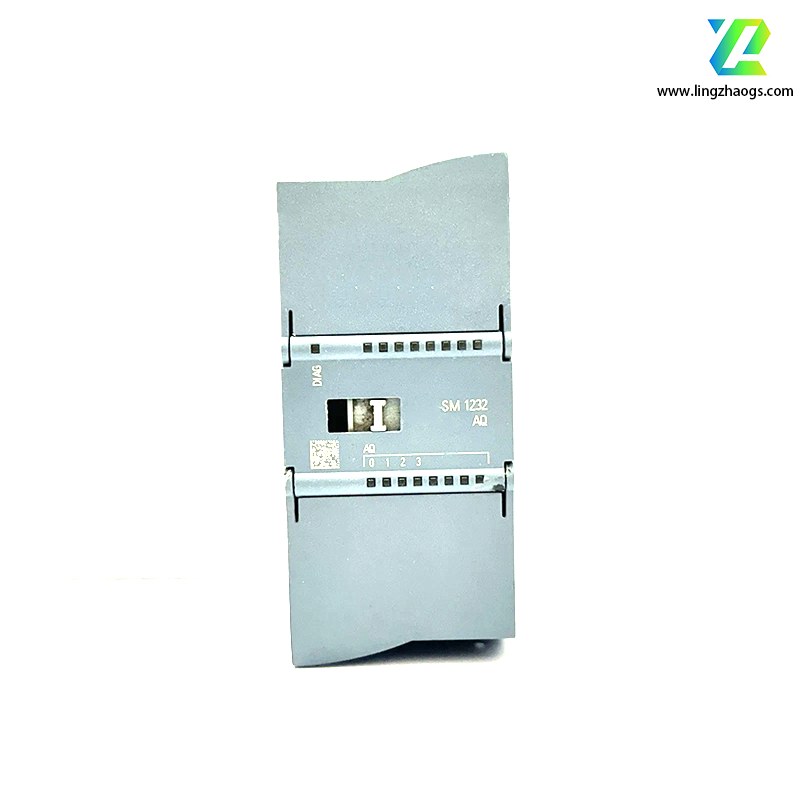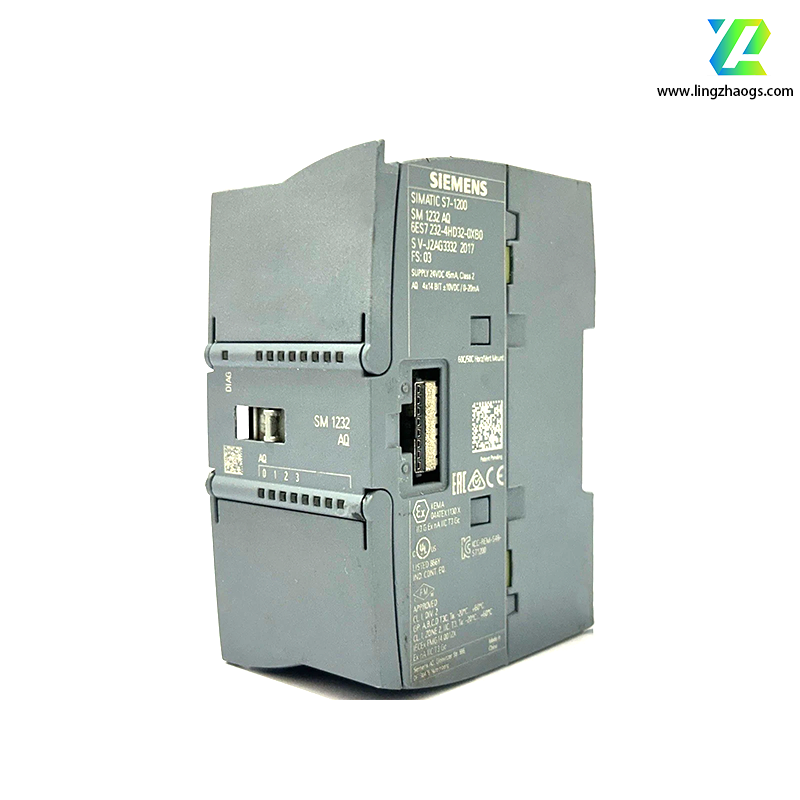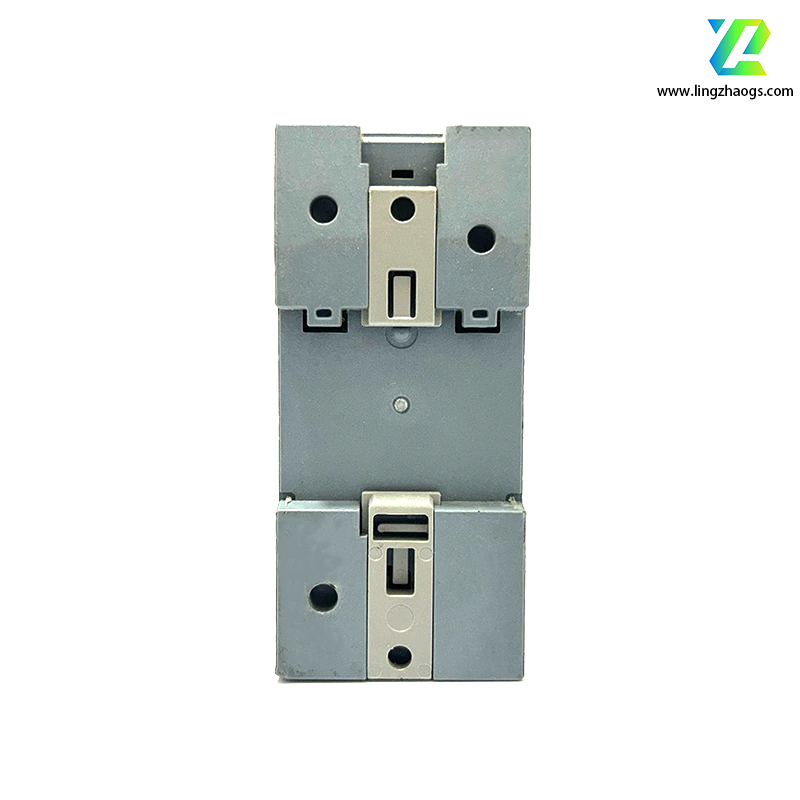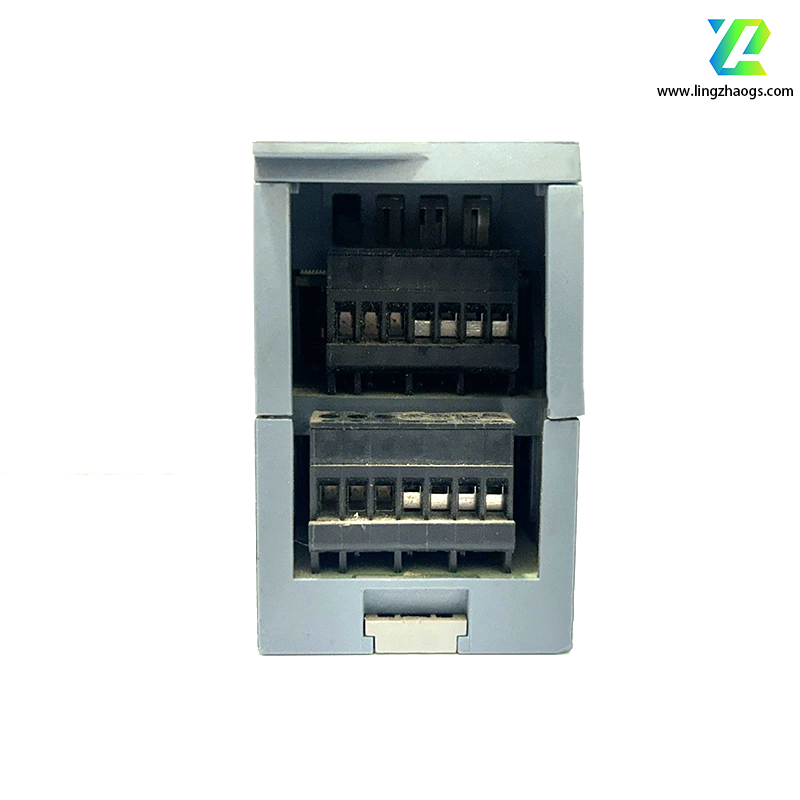The Siemens 6ES7232-4HD32 is an analog output module belonging to the SIMATIC S7-1200 series, designed to convert digital signals from the S7-1200 CPU into analog signals for controlling external actuators in industrial automation systems. Below is its detailed information in English:
- Brand: Siemens
- Part Number: 6ES7232-4HD32
- Product Series: SIMATIC S7-1200
- Product Type: Analog Output Module
- Compatibility: Exclusively compatible with S7-1200 CPU systems; configurable via TIA Portal (Totally Integrated Automation Portal) software.
- Analog Output Channels: 4 independent channels (isolated between channels to prevent signal interference)
- Supported Signal Types:
- Voltage output: 0–10V DC, ±10V DC, 0–5V DC, ±5V DC
- Current output: 0–20mA DC, 4–20mA DC
- Resolution: 12 bits (for voltage signals); 11 bits + sign (for current signals)
- Conversion Time: ≤ 10ms per channel (typical value, ensuring real-time control response)
- Output Accuracy:
- Basic error: ±0.1% of full scale (at 25°C, reference to the selected signal range)
- Temperature drift: ±0.005% of full scale per Kelvin (reduces accuracy loss in variable temperature environments)
- Load Capacity:
- Voltage output: Minimum load resistance 1kΩ (prevents overload damage)
- Current output: Minimum load resistance 250Ω, maximum load resistance 750Ω (matches common industrial actuator impedance)
- Module Power: Powered by the S7-1200 backplane bus (no external power supply required for module operation)
- Load Power: Derived from an external 24V DC power supply (must be compatible with the module’s signal output range)
- Temperature Range:
- Operating: -10°C to +60°C (suitable for most industrial on-site conditions)
- Storage: -25°C to +70°C (protects the module during transportation and storage)
- Humidity: 5%–95% (non-condensing, compliant with IEC 61131-2 standards to avoid moisture-induced faults)
- Electromagnetic Compatibility (EMC): Complies with EN 61000-6-2 (industrial environment) and EN 61000-6-4 (emission requirements), resisting electromagnetic interference from nearby equipment
- Vibration/Shock Resistance:
- Vibration: 5Hz–150Hz, 0.5g acceleration (IEC 60068-2-6)
- Shock: 15g acceleration (11ms duration, IEC 60068-2-27), adapting to mechanical impacts during installation and operation
- Dimensions (W×H×D): 45mm × 100mm × 75mm (compact design, saving installation space in control cabinets)
- Mounting Method: DIN rail mounting (conforms to IEC 60715, 35mm standard rail; easy to install and disassemble)
- Protection Level: IP20 (front panel; prevents dust and small debris from entering internal components, ensuring long-term stability)
- Channel Isolation: Each analog output channel is electrically isolated, avoiding cross-interference between channels and improving signal output stability.
- Flexible Signal Configuration: Supports multiple voltage and current output ranges, which can be set via TIA Portal to match different actuators (e.g., valves, variable-speed drives, analog meters).
- Status Monitoring: Equipped with LED indicators for each channel (green: normal operation; red: fault) and a global SF (System Fault) LED, enabling quick identification of channel or module-level faults.
- Fault Protection: Built-in overcurrent and short-circuit protection for output channels; automatically limits current when faults occur to prevent module damage.
- Calibration Function: Supports on-site calibration via software (TIA Portal), eliminating accuracy deviations caused by long-term use or environmental changes.
- Process Control: Used in chemical, petroleum, and water treatment industries to control analog actuators such as control valves (adjusting flow/pressure) and variable-frequency drives (regulating motor speed).
- Manufacturing Automation: Applied in automotive assembly lines, electronic component production, and packaging machinery to control precision equipment (e.g., positioners, temperature regulators).
- Building Automation: Suitable for HVAC (Heating, Ventilation, and Air Conditioning) systems to adjust fan speeds, valve openings, and temperature setpoints.
- Test & Measurement Systems: Converts digital control signals into stable analog outputs for calibrating sensors, meters, or other test equipment.
